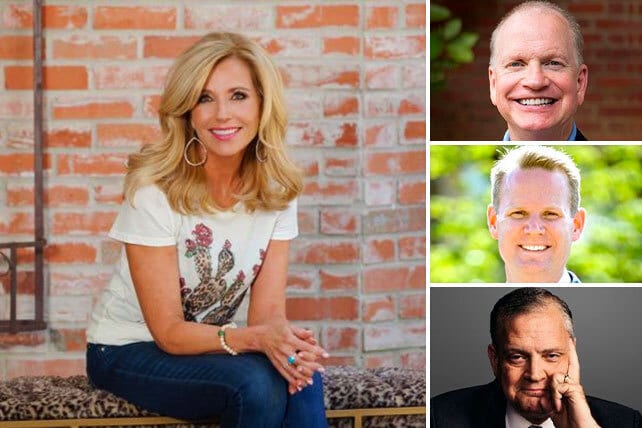(RNS) — Six decades after being denied a spot in the space program by NASA because of her gender, 82-year-old Wally Funk finally reached space aboard the first human flight of billionaire Jeff Bezos’ space tourism venture, Blue Origin.
Few people were more excited for Funk than her fellow congregants at White’s Chapel United Methodist Church in Southlake, Texas.
About 300 members of White’s Chapel turned out for a space launch watch party Tuesday morning (July 20) to view a livestream of the launch that made Funk the oldest person in space. (She edged out the late Mercury 7 astronaut John Glenn, who returned to space aboard the Discovery shuttle in 1998 at age 77.)
RELATED: From Apollo 8 to SpaceIL, how to celebrate Shabbat, Ramadan and Christmas in space
Funk’s journey to space began in the 1960s when she volunteered for the Woman in Space Program, a privately funded project that tested female pilots’ fitness for space travel. She was the youngest graduate of the program, whose participants became known as the Mercury 13, outperforming the men who went on to become NASA’s first astronauts, according to Funk.
But NASA repeatedly turned down her applications to join the space program.
Already an accomplished aviator, she became the first female Federal Aviation Administration inspector and first female National Transportation Safety Board air safety investigator. With 19,600 flying hours, she’s taught more than 3,000 people to fly, according to her website.
“Everything the FAA has, I’ve got the license for,” she said in a video Bezos posted recently on social media.
Still, Funk never gave up her dream of spaceflight.
She applied to NASA again after it began admitting women in the late 1970s. In 2009, she told the alumni magazine at her alma mater, Oklahoma State University, “I’m still going into space one day.”
She finally got the chance when Bezos invited her earlier this month to be an “honored guest” aboard Blue Origin’s first human flight to space.
On Tuesday, Funk flung her arms wide jubilantly as she stepped out of the space capsule, back on Earth.
Photos and video shared online by a local Fox 4 News reporter showed her fellow church members at White’s Chapel counting down to the launch, projected on a large screen in the church sanctuary. Members cheered, clapped and jumped from their pews as the reusable suborbital space tourism vehicle, named the New Shepard, left the ground.




















